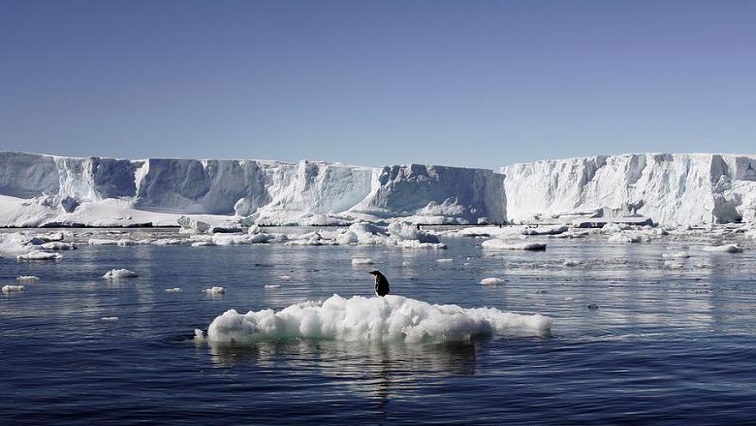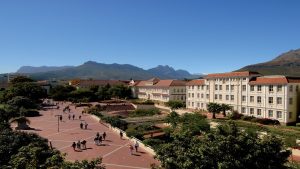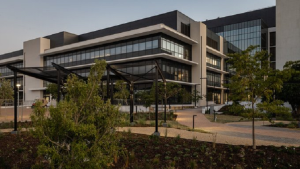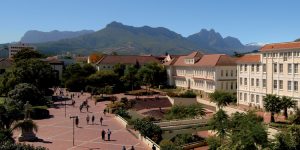Five young South Africans have returned from a once in a lifetime trip to Antarctica, armed with a fire to make an environmental impact in their communities.
The brainchild of South African explorer Riaan Manser took five matriculants from across the country on a journey to learn more about climate change and how they can play an active role in encouraging their communities to make small, sustainable differences.
Antarctica has no towns. The only semi-permanent inhabitants would be scientists for short stays.
South Africa is one of the countries closes to Antarctica, a five-hour chartered flight away. Most of it is covered entirely by ice and snow all year round.
Five intrepid, young South African eco-warriors can count themselves among the lucky few to set foot on the continent.
Led by South African explorer, Riaan Manser and a team of professors from Stellenbosch University, they travelled to Antarctica to solidify their joint passions to reducing climate change to ease the pressure on the planet.
18-year-old Kelby Barker is from the Diocesan School for Girls in Grahamstown in the Eastern Cape. She says the trip pushed her out of her comfort zone, boosting her confidence to believe in herself.
“It was so refreshing to be with people who have the same passion and the same ideas as me. Obviously, we all come from very different places so we all have different experiences and outlooks. But hearing their stories and where they come from I learnt so much and I’m so glad to be able to call them all my friends.”
Now back home waiting anxiously for her matric results, she’s choosing to focus her efforts on the litter problem in the local Makanda Municipality.
“Some of the things we can do to help climate change is just using less plastic and walking places, and just knowing our carbon footprint through that making it normal. If the shops don’t sell plastic bags, there’s better service of buses and people don’t have to use their own cars… the biggest issue in my community is the litter and so thinking of ways to motivate ways to not only pick up the litter but get our municipality to start collecting the littler which they’re not doing at this point.”
Thea Earnest, from Mountview Secondary in Verulam, north of Durban, wants to study geo-spatial science at WITS University. She says that she’s fallen in love with Antarctica.
Earnest describes her reaction when she got off the plane. “There’s this kind of tranquility and peace you get that transcends upon you when you’re in Antarctica and you listen to Antarctica and you feel Antarctica. The moment we stepped out of the plane, just feeling that Icey wind hit your face and all you can see is white. Just ice for miles and miles the kind of diversity that exists in Antarctica is just incredible like the beautiful ice and then you’d see a lovely mountain that’s not covered in ice.”
Like Barker, Earnest is honing in on interactive and informed projects within her own community to turn her passion into hands-on action, saying she was inspired by the many conversations with mentors during the trip.
“One of the main things that Riaan emphasizes is that we need to transition from being conversationalists into action-orientated individuals. Cause activism is not activism without action. And I’m looking to plan some workshops and critical thinking in Verulam. Specifically targeting schools, sustainable development as well. I feel I can genuinely change my community.”
Explorer Riaan Manser led the super keen planet protectors. He’s no stranger to adventure, being the first person to solo kayak around Madagascar in 2009 and to cycle around Africa in 2016. He’s also climbed Mount Kilimanjaro – Africa’s highest summit – and journeyed to Lake Assal in Djibouti, believed to be Africa’s lowest point.
He says the COVID-19 pandemic has forced many people to think more deeply about their interconnectedness with the planet.
“So many of us, so many people listening now also if they look back at 2020, realise how they looked at the world differently… we need to create an economy around saving the planet, we all do want to save the planet but so many people had sat in boardroom meetings, had audiences applaud them just because they talk about it. So I’d like it if the Theas and Kobuses of the world, Ayaka, they could like all of us try to earn a living, pay the bills but do it saving the environment.”
Manser says it is the youth that will drive much-needed change to making decisions to put the planet first.
“What is that political will? And I’ll tell you if we’re lucky it’s zero. You mentioned solar power, South Africa does not need coal power. We have enough resources available with renewable energy. So politically I think there is a problem in the leadership but you’re gonna see a change in what happens in the next 10-15 years especially with these youngsters we’ve got now because they’re involved, not older politicians.”
Matrics in Antarctica will be back for another edition early next year, sending out a call to five more fearless South Africans to lead the tribe charged with actively making a difference.





